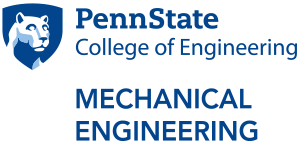
Through a newly introduced course, AMD 597 Legal Issues in Additive Manufacturing, students will be prepared to navigate the legal issues arising in additive manufacturing, emboldening them to become both technical experts and emerging thought leaders in the industry. IMAGE: ISTOCK
First-of-its-kind graduate course tackles legal issues in additive manufacturing
Course aims to prepare students to be thought leaders, technical experts by exploring intellectual property implications in additive manufacturing
7/25/2019
By Erin Cassidy Hendrick
UNIVERSITY PARK, Pa. — When you have the freedom to create anything, how do you protect your design? In tandem, how do you ensure you are not violating an existing intellectual property? In the additive manufacturing (AM) industry, these concerns are intensifying and evolving. To prepare the industry’s next trailblazers, a new course in the Penn State Additive Manufacturing and Design (AMD) graduate program is seeking to address them head-on.
“Additive manufacturing is disrupting product design and how we manufacture parts,” said Timothy W. Simpson, Paul Morrow Professor of Engineering Design and Manufacturing and director of the AMD program. “It’s also disrupting how we protect our intellectual property. Most engineers are not prepared to think about the impact this will have on how their company will deliver new products and services with AM.”
Commonly referred to as 3D printing, the AMD curriculum seeks to embolden students to become both technical experts and emerging thought leaders in the industry. Through the newly offered course — AMD 597 Legal Issues in Additive Manufacturing, the first of its kind in any AM curriculum, according to Simpson — students will have the knowledge necessary to help them navigate the legal issues arising in the AM field.
“Additive manufacturing is creating new ethical dilemmas that companies have to wrestle with," Simpson said. "Therefore, we have to prepare our AMD students for those challenges, especially when they take on leadership roles within companies seeking to exploit AM.”
At its core, the AMD program draws strength from its interdisciplinary connections. It integrates graduate coursework across multiple departments, including mechanical engineering; industrial and manufacturing engineering; engineering science and mechanics; materials science and engineering; and the School of Engineering Design, Technology, and Professional Programs; as well as across the colleges of Engineering and Earth and Mineral Sciences.
With the new course offering, taught for the first time in summer 2019 by Daniel R. Cahoy, professor of business law, the program fuses new interdisciplinary collaborations with Penn State Law and the Smeal College of Business. Students who complete the course will:
- Know the fundamentals of creating valid legal contracts and be able to engage in secrecy agreements and licensing.
- Understand how patents and trade secrets support innovation in additive manufacturing and be able to interpret patent claims and documents.
- Know how to incorporate product liability law into the design of products and processes.
- Be able to create enforceable trademarks and understand how to form a valuable brand.
- Understand how copyrights and design patents protect creative content in additive manufacturing.
- Be able to identify obligations to apply cybersecurity and protect privacy rights.
Traditionally, engineers didn’t need to be well versed in the complex legalities of contracts, nondisclosure agreements and intellectual property, but Simpson explained that "the implications of additive manufacturing require them to carefully consider intellectual property in every aspect of their business models. This course demystifies the legalese and how additive manufacturing is changing the traditional paradigms to protect our intellectual property.”
Brenna McCornac, a student currently enrolled in the course and an additive manufacturing engineer at Cumberland Additive, agreed.
“As a working engineer, I feel that this is a valuable knowledge base to have. I don't believe that many engineers have the opportunity to learn a lot about the law, especially within their specific field,” she said. “Those of us participating in this class will be uniquely equipped to work effectively in a corporate setting or start their own business, having a good basis of legal knowledge pertaining to additive manufacturing.”
As an elective as part of a master’s degree program, the course will help students gain valuable insight into how these issues are directly affecting industry. Christopher Higgins, partner and co-leader of the 3D Printing Group at the law firm Orrick, Herrington & Sutcliffe LLP, helped Cahoy develop and teach the course.
A practicing lawyer, Higgins has been grappling with the implications of AM in precedent-setting intellectual property cases for more than five years through the 3D printing and additive manufacturing division he co-founded at his firm.
He explained that as the industry continues to evolve, the graduates of this course will be poised to make a discernible impact.
“Legal issues, especially intellectual property, are at the forefront of many additive manufacturing companies’ concerns,” Higgins said. “As an engineer, having an understanding of legal issues that may arise in additive manufacturing can make you an invaluable asset to a company. It is a skill set that most engineers do not have when exiting school, which makes this course a unique opportunity at Penn State.”
For more information, email AMDProgram@psu.edu.


